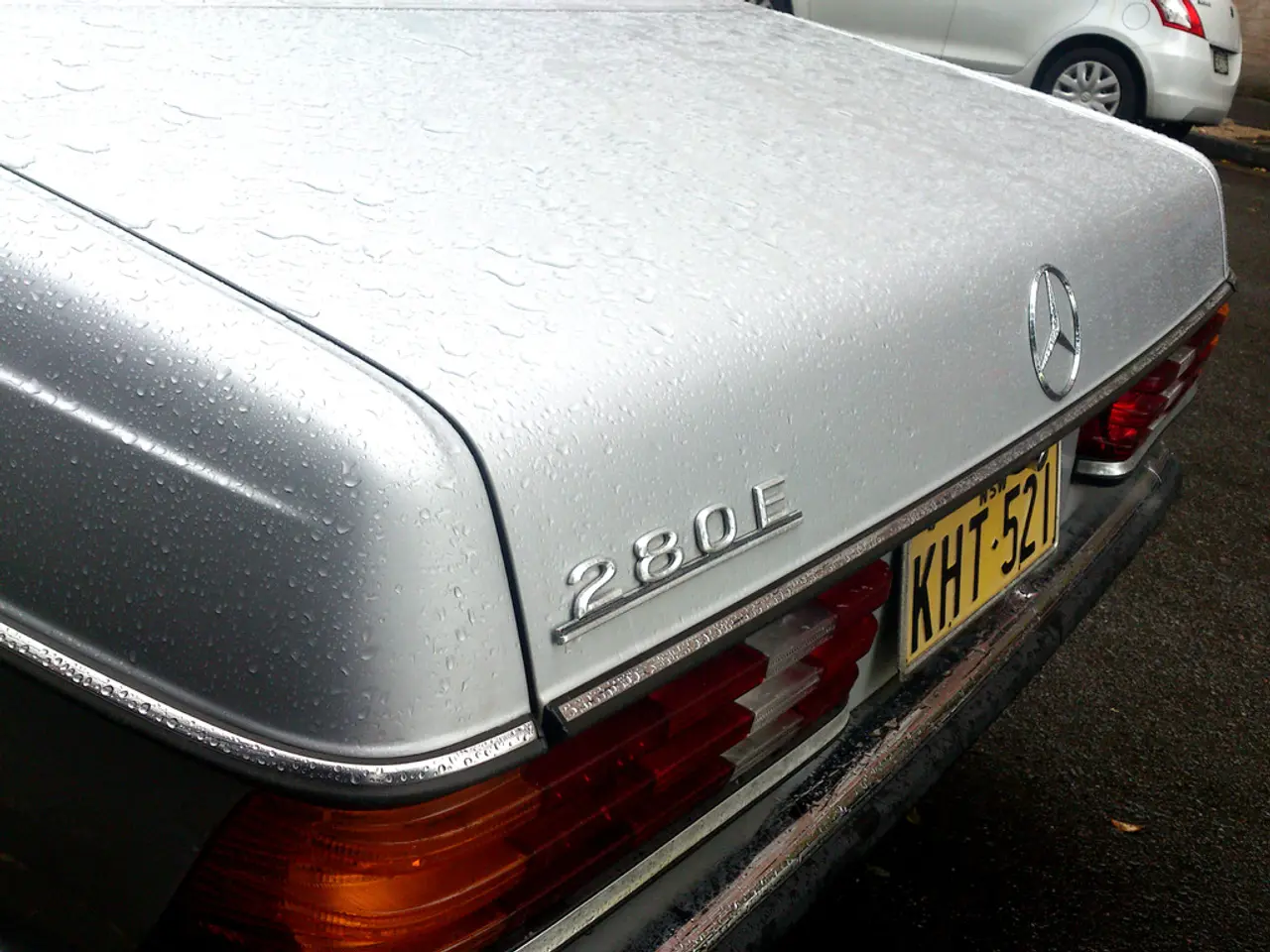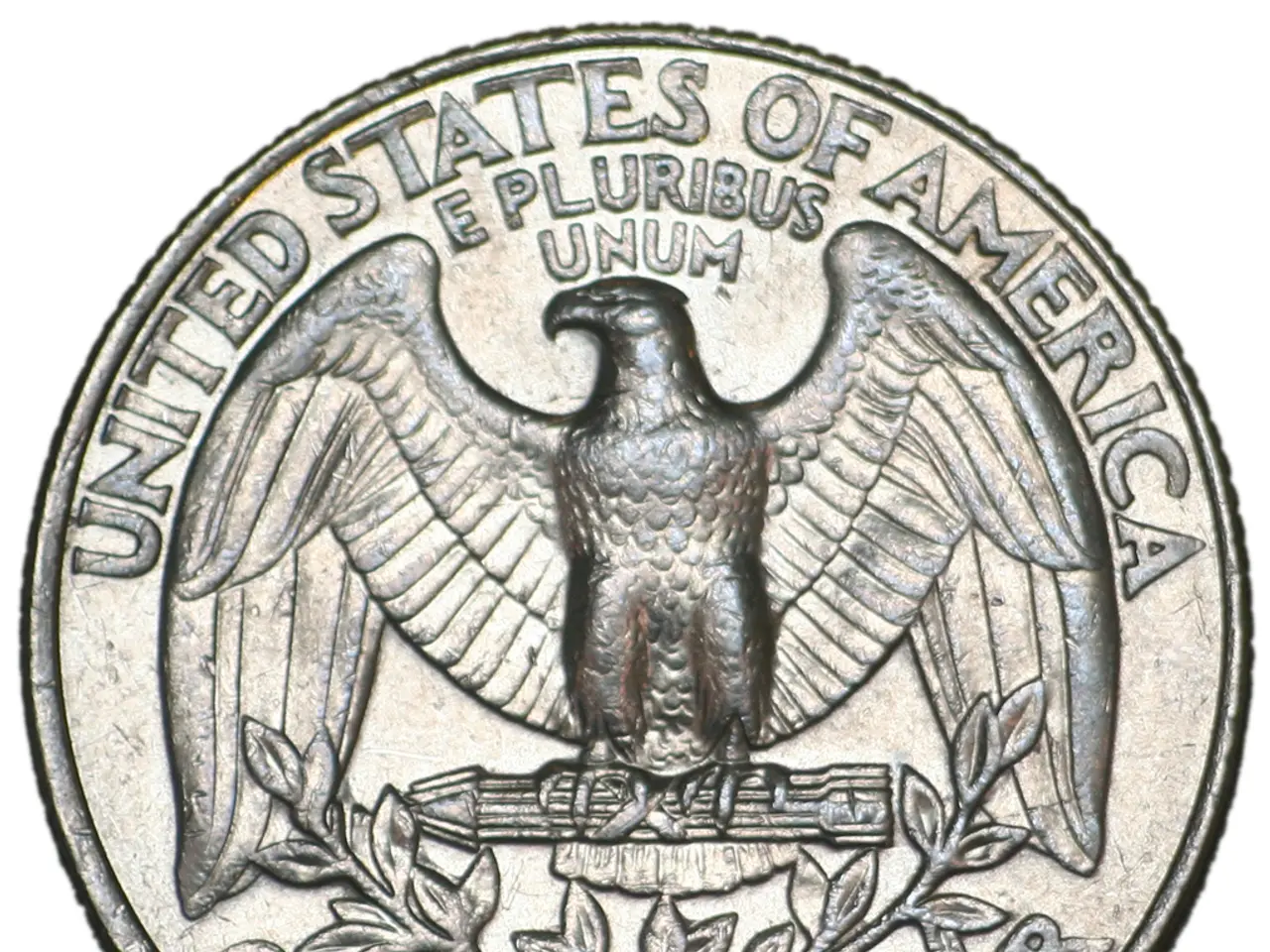Stocks of automakers like BMW, Volkswagen, Mercedes-Benz, and others are plummeting, providing a brief respite to the investors?
In the automotive industry, German powerhouses such as BMW, Volkswagen, Mercedes-Benz, and Porsche are currently navigating a tumultuous landscape. Following a significant decline in their stock prices after Wednesday's market crash, these companies are grappling with the ongoing impact of US tariffs and weak demand in key markets.
The 15% tariff imposed by the US on European car imports is proving costly for German automakers, with Volkswagen alone reporting a €1.3 billion hit in the first half of 2025 due to these tariffs. The financial strain is mounting, with the industry collectively losing billions annually as a result.
Additional challenges include falling sales in China, slower-than-expected electric vehicle transitions, and weak European demand. In response, companies are considering strategic shifts, such as boosting US production to avoid tariffs and seeking new arrangements with Washington. However, these moves may lead to reduced production and job losses in Germany, with estimates suggesting up to 70,000 jobs could be affected.
The EU-US trade deal, while providing some relief, does not completely eliminate the financial pressure on German automakers. As a result, these companies have lowered their profit forecasts and are facing restructuring costs.
Looking ahead, the long-term prospects focus on strategic investments in electric and hydrogen vehicles as companies adapt. However, near-term risks remain significant due to trade tensions and tariff costs. Investors face a complex balance between the short-term earnings pressure and the sector's efforts towards innovation and geographic diversification.
In the short term, the outlook remains cautious, with continued financial strain from tariffs and market weakness. The long-term outlook, however, depends on the success of German automakers in adjusting their production footprint and accelerating their electric vehicle transition.
Amidst this negative chart trend, current operational developments, and the risk of further price losses, short-term investors should consider staying away from BMW, Volkswagen, Mercedes-Benz, and similar companies. On a positive note, analysts and BÖRSE ONLINE are advising to buy Porsche AG (WKN: PAG911), which offers attractive valuations and promising turnaround opportunities.
Interestingly, the results of the U.S. election night were a concern for German carmakers, as investors fear high tariffs could be imposed under a Trump presidency. Meanwhile, the shares of U.S. automaker Tesla rose by double digits on Wednesday, potentially benefiting from protectionist measures. BMW's sales have shrunk due to weak business in China and problems with braking systems, leading to an 84 percent drop in profit.
In conclusion, the German automotive sector is facing a challenging period, with the short-term outlook remaining cautious due to ongoing financial strain from tariffs and market weakness. The long-term outlook, however, depends on the success of German automakers in adapting to the changing landscape and accelerating their electric vehicle transition.
The financial strain faced by German automakers, such as BMW, Volkswagen, Mercedes-Benz, and Porsche, is escalating due to the 15% tariff imposed by the US on European car imports, with Volkswagen alone reporting a €1.3 billion hit in the first half of 2025. Moreover, these companies are exploring strategic shifts to mitigate the impact of tariffs, which may result in reduced production and potential job losses in Germany.




